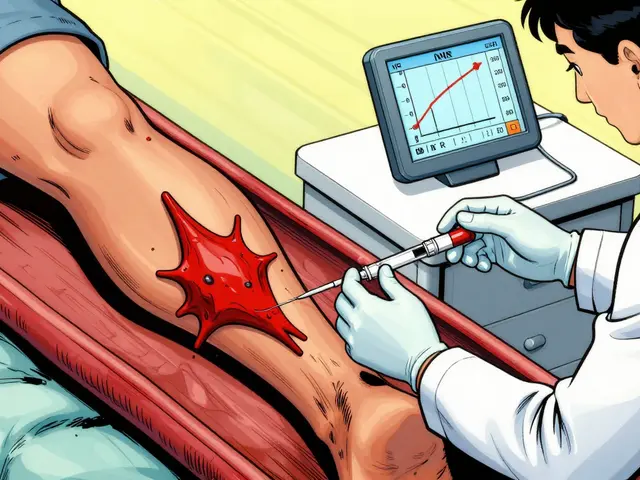Bupropion: What it treats and how to use it safely
Thinking about bupropion or just started a prescription? Good — getting clear facts up front helps. Bupropion (brand names include Wellbutrin and Zyban) is used mainly for depression and to help people quit smoking. It’s different from typical SSRIs, so it can be a better fit for people who need energy boost or want to avoid sexual side effects that some other antidepressants cause.
How bupropion works and who it helps
Bupropion affects the brain chemicals dopamine and norepinephrine. That helps lift mood and reduce cravings. Doctors often choose it when someone hasn’t responded well to SSRIs, or when sexual side effects or fatigue from other drugs are a problem. It’s also prescribed to support smoking cessation under the name Zyban.
It’s not the right choice for everyone. If you have a history of seizures, anorexia, bulimia, or sudden alcohol withdrawal, bupropion can raise your seizure risk and is usually avoided. People taking MAO inhibitors must not use it. Tell your doctor about other meds, supplements, and any past medical problems.
Side effects, dosing basics, and safety tips
Common side effects are dry mouth, trouble sleeping, headache, and sometimes jitteriness. Most side effects ease after a couple of weeks. A serious but rare risk is seizures — risk increases with high doses, existing seizure conditions, or heavy alcohol use. If you notice mood swings, increased anxiety, suicidal thoughts, or strange behavior, call your clinician right away.
Typical dosing depends on the form (immediate, sustained, or extended release). Doctors start low and raise the dose slowly to reduce side effects and seizure risk. Do not split or crush extended-release pills. Follow the exact directions your prescriber gives and use the same pharmacy if possible to avoid dispensing errors.
Watch for drug interactions. Combining bupropion with certain antidepressants, antipsychotics, stimulants, or thyroid meds can change effects or raise risks. Avoid starting other prescription drugs, herbal products, or large amounts of alcohol without checking with your provider.
Need practical tips? Take bupropion in the morning to cut down on insomnia. Keep a symptom diary for the first month so you can report improvements or side effects. Never stop bupropion suddenly without medical advice — your doctor may want you to taper. If you’re trying to quit smoking, coordinate timing: sometimes starting bupropion before your quit date helps reduce cravings.
Questions to ask your prescriber: Why this drug for me? What dose and how long? What side effects should I expect and which ones are red flags? When should I have follow-up checks or labs? Clear answers make treatment safer and more effective.
Want more details or need help finding reliable resources? Reach out to your pharmacist or doctor — they can give guidance tailored to your health history. Bupropion can work well for many people when used carefully and monitored properly.






